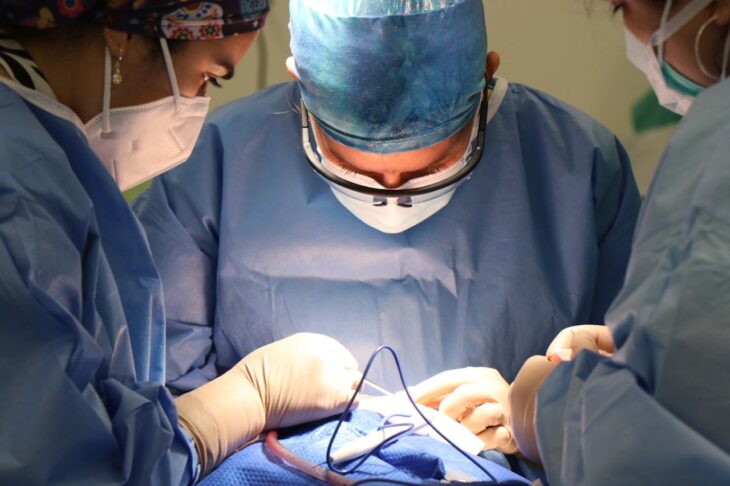
Advanced reproductive surgery is highly specialized and minimally invasive. Through the use of a laparoscope, your doctor assesses and addresses any abnormalities of the ovaries, fallopian tubes and uterus. The primary goal of advanced reproductive surgery is to repair any same to those reproductive organs and restore normal function.
With advanced reproductive surgery the laparoscopic technology used in the approach means less risk of further damage to your reproductive organs and a speedier recovery. Laparoscopic surgery allows your doctor to remove scar tissue, uterine polyps and fibroids, ovarian cysts and any other abnormalities that may cause infertility. Through the use of advanced reproductive surgery, your doctor can also diagnose certain issues affecting your fertility.
What Are Advanced Reproductive Surgery?
There are multiple conditions that cause infertility and quite often, your doctor determines multiple factors at the core of your diagnosis. Treatment involves medical or surgical intervention and sometimes both are necessary to restore fertility and sustain pregnancy. These are the typical procedures involved in advanced reproductive surgery.
Laparoscopy: Your doctor relies on laparoscopic surgery as a means to “see” what’s happening inside your reproductive tract. Used as a diagnostic procedure your doctor examines the organs in the abdominal and pelvic region. A laparoscopic procedure also helps identify and remove endometriosis, ovarian cysts and reverse tubal ligation (for females who had their tubes tied).
Hysteroscopy: This procedure allows your doctor the opportunity to view inside your uterus. Your doctor uses hysteroscopy when there is abnormal bleeding or other symptoms of fibroids and indications of uterine abnormalities that impact your fertility. Hysteroscopy also aids in the removal of scar tissue and the repair of uterine anomalies.
Myomectomy: A myomectomy is a procedure used to remove uterine fibroids without damaging the uterus. Depending on the location of the fibroids in your uterus, they may interfere with fertility and pregnancy. Some fibroids within the uterine cavity prevent implantation. A laparoscopic myomectomy is the preferred method for removing this type of fibroid.
Egg Retrieval: Doctors perform laparoscopic ovum pickup on females undergoing IVF or those who wish to freeze or donate their eggs. This minimally invasive procedure draws out the egg(s) using a laparoscopic technique. An ultrasound probe identifies the location of the follicles and guides a very thin needle through the vagina and into the follicle drawing out the egg(s) using gentle suction.
What Conditions Require Advanced Reproductive Surgery?
When you suspect infertility, your doctor looks at your family history and performs a few different tests. Sometimes the diagnosis requires treatment in the form of medication and other times a complete diagnosis requires a deeper look and possibly advanced reproductive surgery. Here are the more common conditions affecting fertility that require surgery:
- Unidentifiable menstrual disorders
- Endometriosis
- PCOS
- Recurrent miscarriage
- Uterine fibroids
- Uterine abnormalities
Your partner may also undergo advanced reproductive surgery as a form of treatment for male factor infertility. These conditions requiring a surgical procedure are:
- Erectile dysfunction
- Ductal system obstructions
- Varicocele repair
What Can I Expect From This Type of Surgery?
When your doctor determines surgery necessary for diagnosis or treatment they present you with the details. The advanced reproductive surgical approach, as previously mentioned, is quite minimally invasive, far less so than open surgery. Typically performed as an outpatient procedure, recovery takes less time.
You’re sedated and depending on the type of surgery, may or may not have any incisions. The procedure usually takes little time and you’ll rest at home for a few days. Again, depending on the surgery your doctor may require a short hospital stay for observation. Each case is unique, and your doctor advises you fully prior to surgery.
Are You a Candidate for Advanced Reproductive Surgery?
For more on advanced reproductive surgery or to find out if you qualify please contact LA IVF. Our team of specialists understands how important a diagnosis is to you and your family. We look forward to our journey together.










